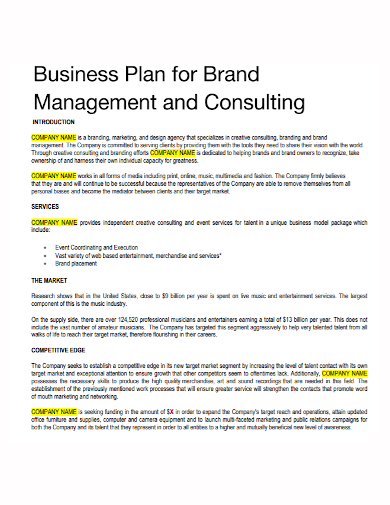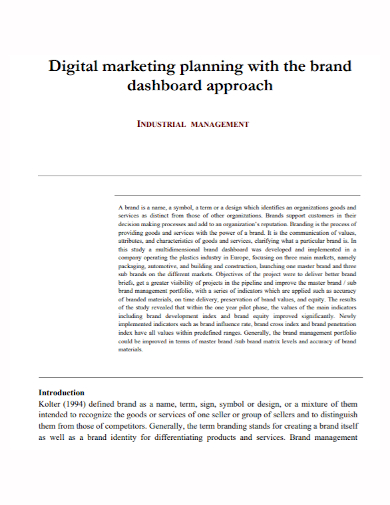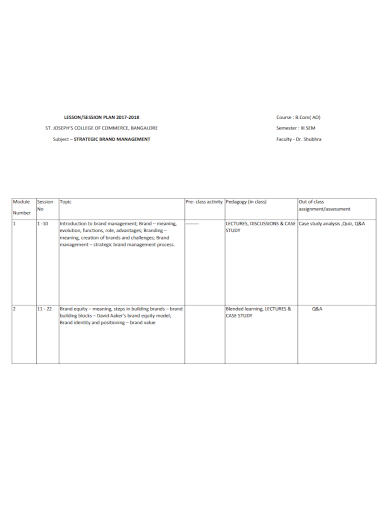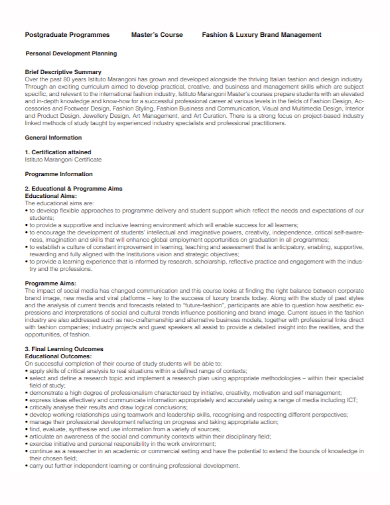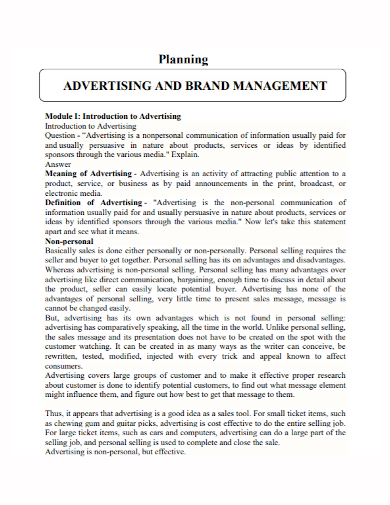It should go without saying that developing a brand is only the first step in a prolonged process. Brand management is a more involved procedure. To maintain success, a concerted effort to deliver dynamic branding is required. Consider your company to be a tree seed that you’ve placed in the ground. As your company expands, your brand is the leaves and branches that bloom. Brands have a significant impact on customer engagement, market competition, and corporate management. A strong brand presence in the market distinguishes a company’s products from those of its competitors and builds brand affinity for its products or services.
What is brand management? Brand management is a marketing function that employs tactics to boost a product line’s or brand’s perceived value over time. Effective brand management allows product prices to rise while also cultivating loyal customers through favorable brand connections, imagery, and strong brand awareness. A thorough grasp of the brand, its target market, and the company’s overarching vision is required when developing a strategic strategy to maintain or increase brand value. It is a branding element that entails the upkeep and improvement of products, services, and brand perception. When done successfully, brand management provides cost leverage, increases consumer loyalty, and establishes meaningful brand awareness. It also represents the link between the customer and the purchasing process.
7+ Brand Management Plan Samples
1. Brand Management Plan Template

2. Brand Management Business Plan
3. Brand Management Digital Marketing Plan
4. Brand Management Session Plan
5. Strategic Brand Management Plan
6. Brand Management Development Plan
7. Brand Assessment Management Plan
8. Advertising Brand Management Plan
Principles of Brand Management You Should Know
The following factors must be evaluated regularly – they are the key to overall good brand management. Here are the most significant principles, along with an explanation of why they are vital.
- Brand Equity – Through reputation, impression, and perception, brand equity builds value. It’s significant because it alters the dynamic of a company’s product or service, as customers place their trust in the brand rather than their impression of the product or service. As a result, firms have the option to raise their pricing.
- Brand Recognition – The ease with which consumers may recognize your brand without hearing or seeing its name is referred to as brand recognition. This is frequently a visual aspect, as items such as a motto, color scheme, logo, or packaging help people remember the brand. It does, however, extend to things like audio, such as jingles for brand advertisements. Customers need to recognize your brand since it sends a message to them anytime they see one of your products. As a result, they have a better likelihood of making a purchase.
- Brand Loyalty – When a customer prefers one brand over another, this is known as brand loyalty. It’s important to note that brand loyalty differs from customer loyalty, which occurs when a customer purchases a product or service based on its specific quality. When a customer buys a product or service simply because of their brand loyalty, this is known as brand loyalty. It’s significant since it leads to other advantages, such as word-of-mouth marketing.
A well-known brand must constantly manage its image to sustain its reputation. Effective brand management raises brand awareness, measures and manages brand equity, drives efforts that support a consistent brand message, identifies and accommodates new brand products, and places the brand effectively in the market. It takes years to build a brand, but once it is established, it must be kept alive via innovation and originality.
FAQs
What are some of the best brand management strategies that you should apply?
Implementing a simple brand management approach isn’t enough. You’ll need ground-breaking ideas that challenge and update your existing ones regularly.
- Create a unique selling offer, but don’t just leave it at that; exploit it to your advantage.
- Evaluation is a missing, insufficient component of the puzzle. Instead, use this detailed model.
- Attention is required for brand assets.
Why is brand management important?
The strategic development and systematic management of differentiation are defined as brand management. Due to the proliferation of digital and social media, and the resulting need for consistent and relevant marketing messaging, brand management is more important than ever. Importantly, when done correctly, brand management generates brand equity over time.
What is an example of a brand management?
A brand does not have to be associated with a specific product. A single brand could be used to represent a variety of products or services. Ford, for example, sells a variety of automobiles under the Ford name. A brand name can also encompass many brands under its umbrella.
The more effectively you manage your brand, the more valuable it will become. The more you evaluate and analyze it, the more effective it will be in the future. Check out some brand management plan samples and templates supplied in the article for your reference if you want to view more samples and formats.
Related Posts
FREE 10+ Scope Management Plan Samples
FREE 10+ Operations Management Plan Templates
FREE 10+ Transport Management Plan Templates
FREE 9+ Crisis Plan Samples
FREE 9+ Sample Quality Management Plan
FREE 8+ Sample Behavior Management Plan
FREE 8+ Sample Risk Management Plan
FREE 4+ Sample Configuration Management Plan
FREE 19+ Construction Management Plan Samples
FREE 13+ Communication Management Plan Samples
FREE 12+ Sample Classroom Management Plan
FREE 10+ Clinical Quality Management Plan Samples
FREE 10+ Construction Safety Management Plan Samples
FREE 9+ Sample Risk Management Plan
FREE 7+ Chronic Disease Management Plan Samples

